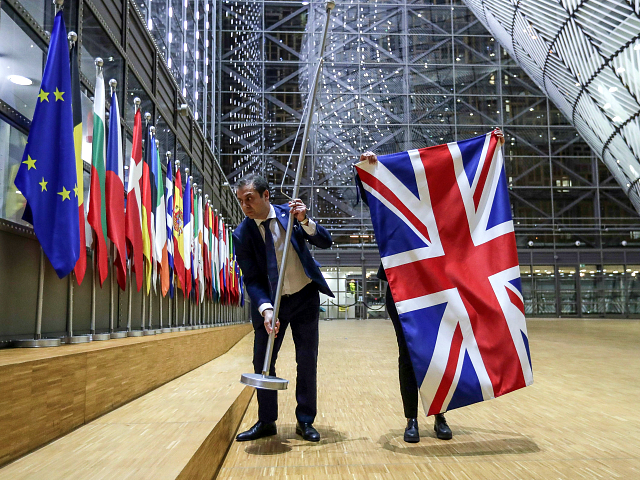This week’s round of trade talks between Brexit Britain and the European Union have ended a day early, with the UK’s negotiator David Frost saying there were “significant differences” remaining between the two parties.
Talks in Brussels, Belgium, began on Monday and were meant to last all week. While Mr Frost said that “negotiations have been comprehensive and useful”, “they have also underlined the significant differences that still remain between us on a number of important issues”.
“We remain committed to working hard to find an early understanding on the principles underlying an agreement out of the intensified talks process during July, as agreed at the HLM [high-level meeting] on 15 June. Talks will continue next week in London as agreed in the revised terms of reference published on 12 June,” Mr Frost said in a statement on Thursday.
“Significant differences” likely refer to the ongoing dispute between the UK and the political bloc over continued access to Britain’s lucrative fishing waters, the European Court of Justice overseeing any future trade deal, and pressure from EU countries for the UK to continue to abide by “level playing field” rules to stop Brexit Britain becoming a major global competitor to the detriment of European neighbours.
Michel Barnier, Mr Frost’s Brussels counterpart, also released a statement today where he hinted at growing tensions over the UK refusing to cross “red lines” on sovereignty, saying that “after four days of discussions, serious divergences remain”.
Mr Barnier said that the EU continued to demand “robust guarantees for a level playing field”, a “long term” solution to fishing, and “effective dispute settlement mechanisms”.
“The EU expects, in turn, its positions to be better understood and respected in order to reach an agreement. We need an equivalent engagement by the United Kingdom,” he said.
Tweeting out the statement, the Frenchman claimed that while the “EU engaged constructively”, “we now need equivalent engagement from the UK”.
Merkel Tells Europe to Prepare For Brexit Deal Not Materialising https://t.co/k7ljfbXdfO
— Breitbart London (@BreitbartLondon) July 1, 2020
While frosty, the communications remained far more civil than when Mr Frost hit back at the EU in May over its “low-quality” offer a deal that no “democratic country could sign”. In return, Mr Barnier said that he did not like the “tone” of the Briton’s letter and rejected calls for a better deal.
Last month, Prime Minister Boris Johnson told both sides to “put a tiger in the tank” and add “a bit of oomph” to the final months of talks, saying that he did not think it would be impossible to agree on a deal by the end of July.
“I don’t think we are actually that far apart,” Prime Minister Johnson had said. “The faster we can do this, the better, and we see no reason why you shouldn’t get that done in July… I don’t want to see [the talks] going on until the autumn, winter.”
However, Germany’s Chancellor Angela Merkel, who took over the rotating presidency of the European Council on Wednesday, said that the European Union should prepare for a no deal.
“Progress in talks is, to put it cautiously, very limited… We have agreed with Britain to speed up the talks in order to seal a deal in the autumn that must be ratified by the end of the year,” she said.
But the EU and German “must be prepared… for the possibility that a deal doesn’t materialise,” Dr Merkel told the German parliament.
The UK officially left the EU on January 31st, 2020, but remains in a transition period until December 31st, 2020. During this time, the UK remains tied to the EU’s rules while working a future trading relationship with the bloc.
If the two parties do not agree on a deal, the UK will trade with the EU on World Trade Organization (WTO) terms.
Downing Street Pushes for September Deadline for EU Trade Deal https://t.co/24milFX4Vc
— Breitbart London (@BreitbartLondon) June 30, 2020

COMMENTS
Please let us know if you're having issues with commenting.